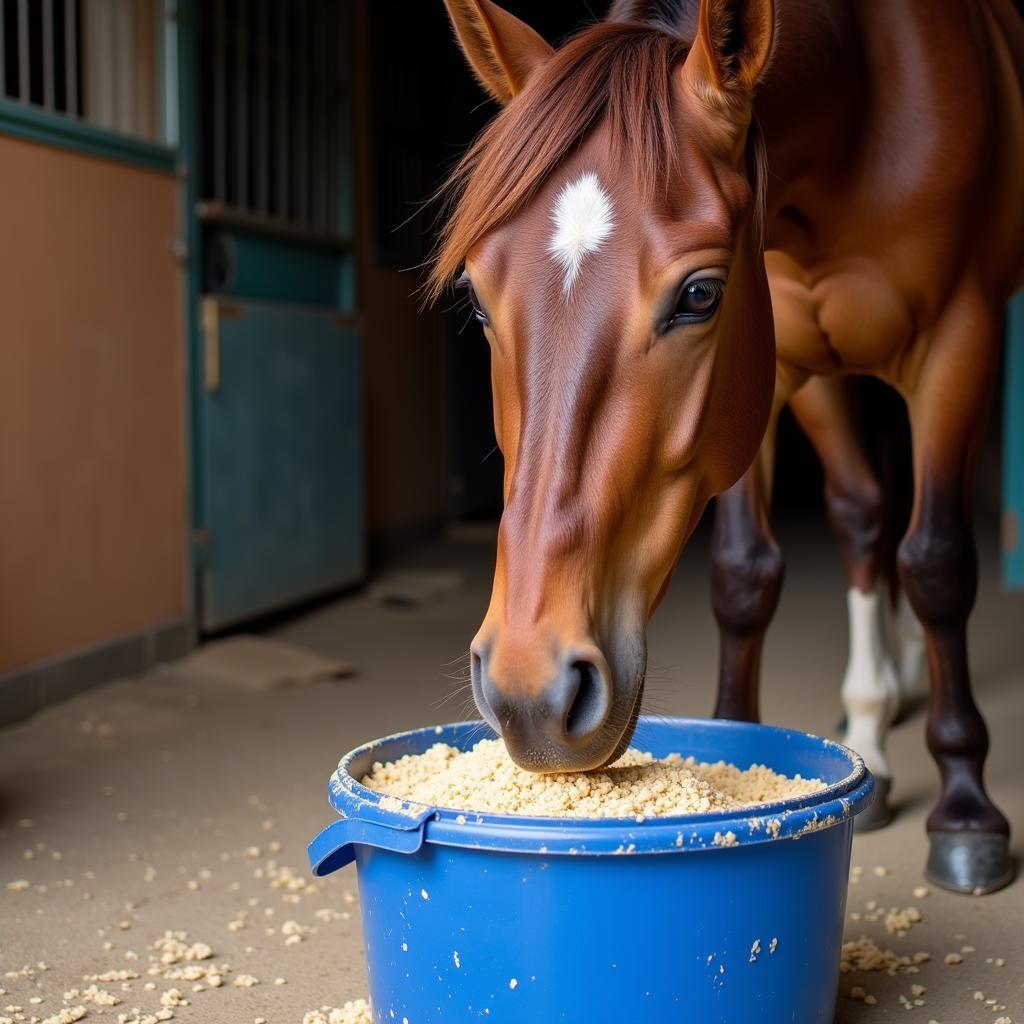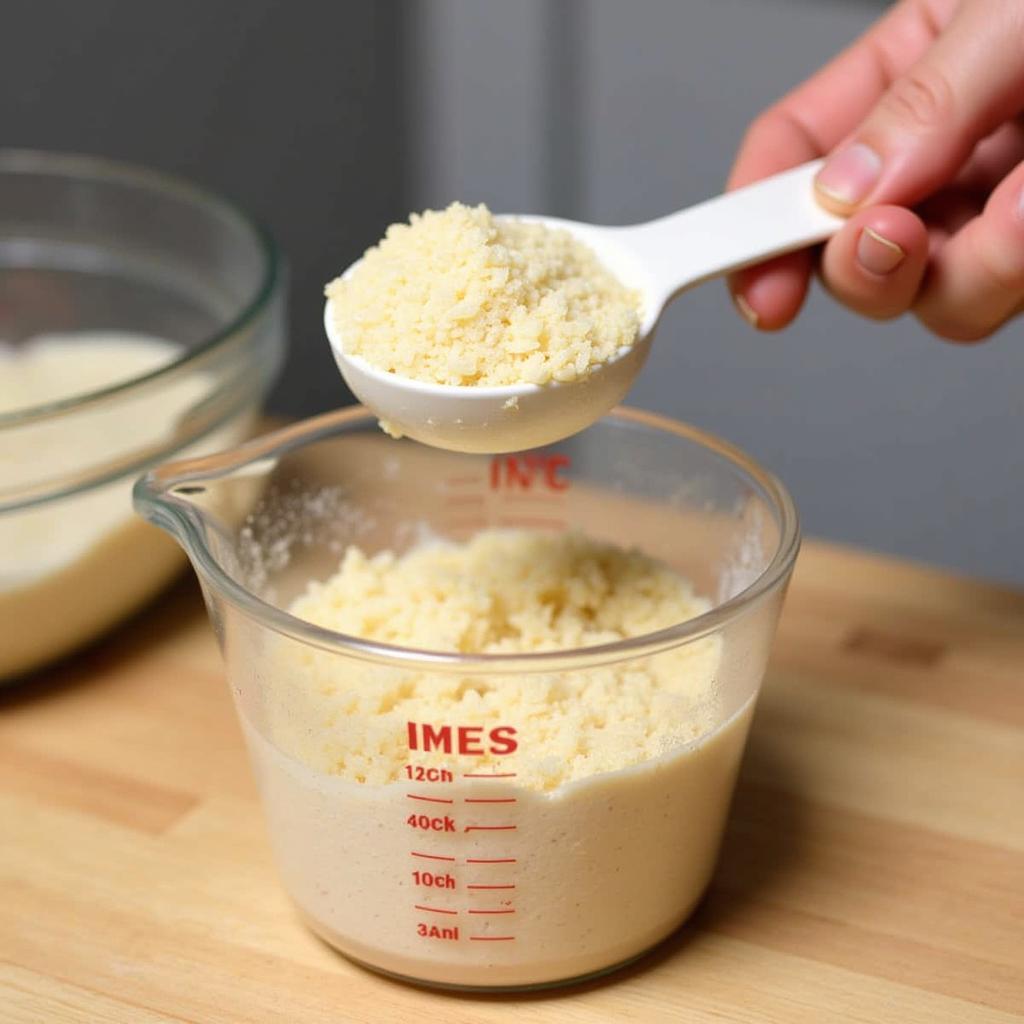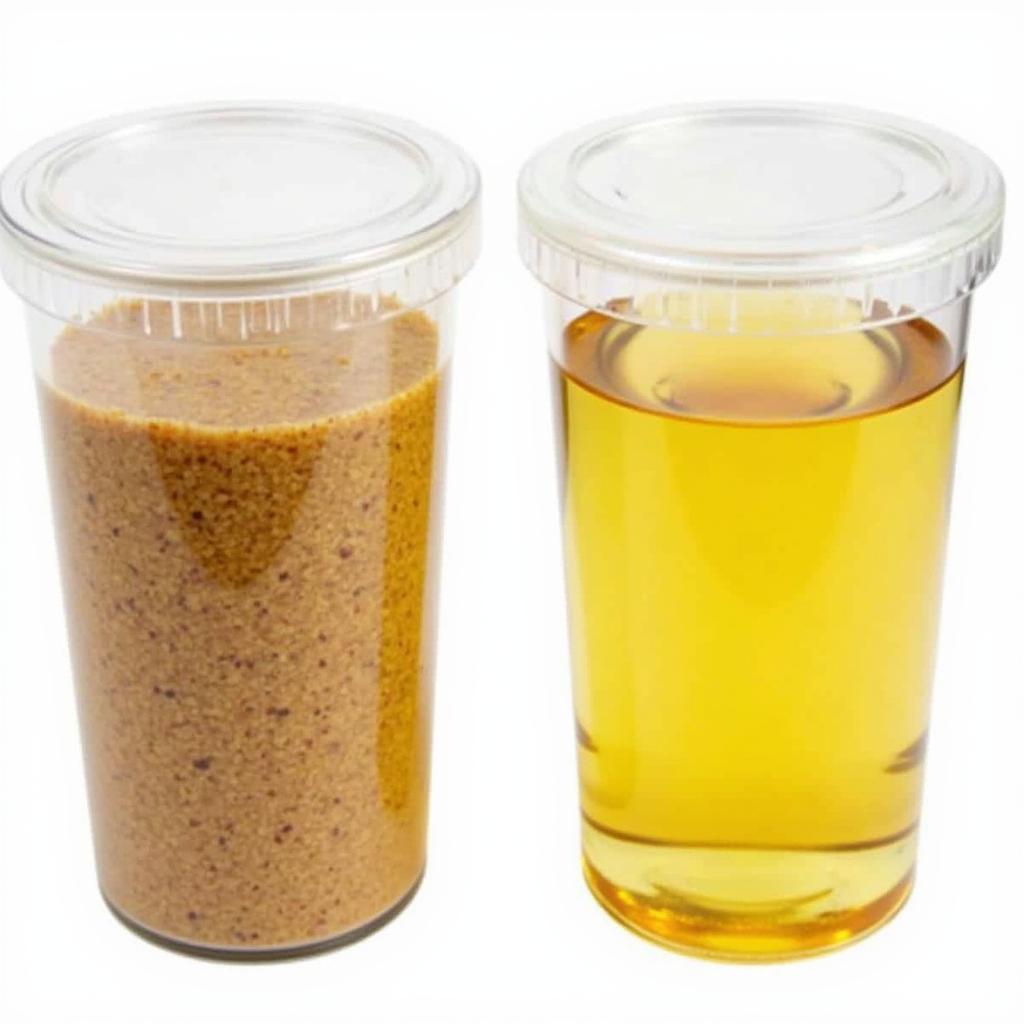Rice bran for horses has become a popular feed supplement, praised for its potential to boost weight gain and improve coat condition. But what exactly is rice bran, and is it the right choice for your equine companion? This comprehensive guide will explore the benefits, risks, and best practices for incorporating rice bran into your horse’s diet.
Understanding Rice Bran and Its Nutritional Value
Rice bran is the outer layer of the rice grain, removed during the milling process. It’s a byproduct rich in nutrients, including fat, fiber, and various vitamins and minerals. The high fat content makes it a desirable energy source, particularly beneficial for hard-keeping horses or those needing to gain weight. Rice bran also contains vitamin E, an important antioxidant that supports muscle function and overall health. However, not all rice bran is created equal. Stabilized rice bran is preferred for horses, as it prevents the fat from going rancid, ensuring optimal nutritional value.
After reviewing several feeding options, I’ve found that stabilized rice bran is a safe and effective way to provide extra calories and improve coat health. It’s important to introduce it gradually into your horse’s diet to avoid digestive upset.
 Horse Eating Rice Bran from a Bucket
Horse Eating Rice Bran from a Bucket
The Benefits of Rice Bran for Horses
Incorporating rice bran into a horse’s diet can offer a range of advantages. For horses struggling to maintain a healthy weight, rice bran provides a concentrated source of calories without relying solely on large quantities of grain. This is especially helpful for older horses or those recovering from illness. The fat in rice bran also contributes to a glossy, healthy coat, giving your horse a radiant sheen. Furthermore, rice bran can serve as a palatable addition to the diet, making it easier to administer medications or supplements. Check out our resources on oil supplements for horses for more information on other beneficial oils.
Is rice bran good for all horses? While rice bran offers many benefits, it’s crucial to consult with your veterinarian or equine nutritionist before adding it to your horse’s diet. They can help determine the appropriate amount based on your horse’s individual needs and health condition.
Potential Risks and Considerations
While generally safe, rice bran can pose some risks if not managed correctly. The high phosphorus content in rice bran can interfere with the calcium-phosphorus ratio in the diet, potentially leading to skeletal issues. It’s important to monitor this balance carefully, especially in growing horses. Overfeeding rice bran can also cause digestive upset, including diarrhea and colic. Always introduce rice bran gradually and monitor your horse for any adverse reactions. Do you need custom halters for your horses? Check out our custom halters for horses page.
 Measuring Rice Bran for Horses
Measuring Rice Bran for Horses
How to Feed Rice Bran to Your Horse
When introducing rice bran, start with small amounts, gradually increasing the quantity over several days or weeks. This allows the horse’s digestive system to adjust and minimizes the risk of digestive upset. Mix the rice bran with other feed to ensure even consumption. Always provide plenty of fresh water, as the high fat content can increase water intake. Are you interested in horse figurines? Visit our Jim Shore horse collection.
What’s the ideal daily amount of rice bran for a horse? The appropriate amount varies depending on the individual horse’s needs and activity level. Your veterinarian or equine nutritionist can help you determine the right amount for your horse.
Rice Bran vs. Rice Bran Oil
While both derived from rice, rice bran and rice bran oil have different nutritional profiles. Rice bran oil is extracted from the bran and contains a higher concentration of fat and vitamin E. It’s often used as a calorie supplement and can contribute to a healthy coat. You can find out more about the benefits of rice bran oil horses.
 Comparing Rice Bran and Rice Bran Oil
Comparing Rice Bran and Rice Bran Oil
Conclusion
Rice bran can be a valuable addition to your horse’s diet, offering a concentrated source of calories and contributing to a healthy coat. However, it’s essential to use it responsibly, considering the potential risks and working with your veterinarian or equine nutritionist to determine the appropriate amount and monitor your horse’s health. By following the guidelines outlined in this guide, you can safely incorporate rice bran into your horse’s diet and reap its potential benefits. Are you looking for horses for sale peoria il? Check our listings!
FAQs
- Can I feed rice bran to my pregnant mare?
- Is rice bran suitable for all breeds of horses?
- How do I store rice bran to maintain its freshness?
- What are the signs of rice bran overdose in horses?
- Can rice bran be fed alongside other supplements?
- Is rice bran a good source of protein for horses?
- How does rice bran compare to other calorie-dense feeds?
For further assistance, please contact us at Phone: 0772127271, Email: [email protected], or visit our address: QGM2+WX2, Vị Trung, Vị Thuỷ, Hậu Giang, Việt Nam. We have a 24/7 customer service team ready to assist you.